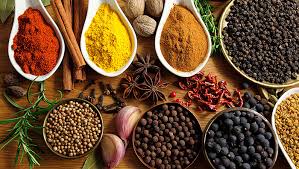记忆方法
1. 在空中飞、飘的风味、气味。
2. 谐音“飞来味儿”-------这就是所谓的十里飘香吧。
2. 谐音“飞来味儿”-------这就是所谓的十里飘香吧。
中文词源
flavor 味道
来自辅音丛bl,fl, 吹,鼓起,词源同blow, blossom. 用来指飘浮的气味,味道。
英语词源
- flavor (n.)
- c. 1300, "a smell, odor" (usually a pleasing one), from Old French flaor "smell, odor; action of smelling, sense of smell," probably from Vulgar Latin flator "odor," literally "that which blows," in classical Latin "blower," from flare "to blow, puff," which is cognate with Old English blawan (see blow (v.1)).
"Not common before Milton's time" [Century Dictionary], and it is not clear what exactly Milton meant when he used it. The same Vulgar Latin source produced Old Italian fiatore "a bad odor." Sense of "taste, savor" is 1690s, perhaps 1670s; originally "the element in taste which depends on the sense of smell." The -v- in the English word is euphonic or perhaps from influence of savor. Flavor-of-the-month is from 1946 (originally of ice cream). - flavor (v.)
- 1540s, "communicate a distinctive quality to," from flavor (n.). Meaning "add a flavoring substance to" is from 1740. Earliest use was now-obsolete sense of "to smell" (early 15c.). Related: Flavored; flavoring.
权威例句
- 1. Vegetables such as peppers can overpower the flavor of the stock.
- 像甜椒这样的蔬菜会抢了原汤的味道。
- 2. Add a splash of lemon juice to flavor the butter.
- 加上一点柠檬汁给黄油调味。
- 3. I think the flavor of fresh strawberries is out of this world.
- 我认为新鲜草莓的味道鲜美无比.
- 4. Fry quickly to seal in the flavor of the meat.
- 快速把肉油煎一下,以保住其美味.
- 5. The sun - dried tomatoes give the dish a wonderfully rich flavor.
- 晒干的番茄使这道菜味道特别浓郁.

